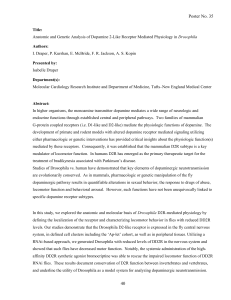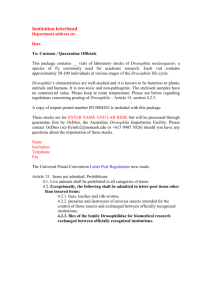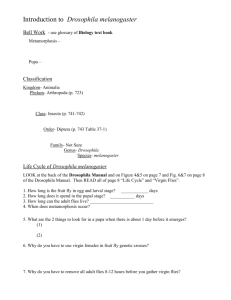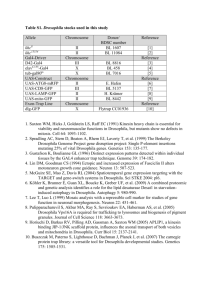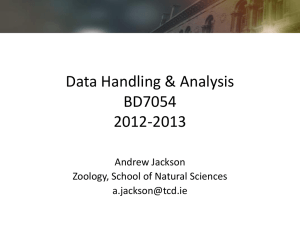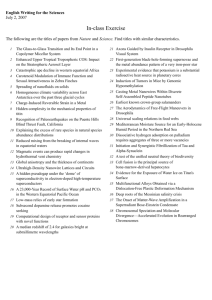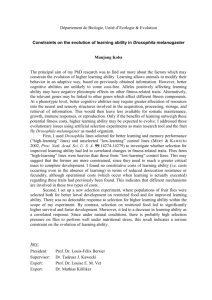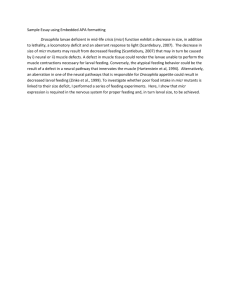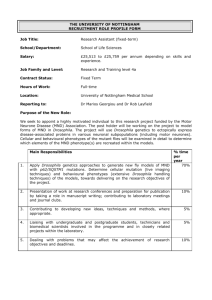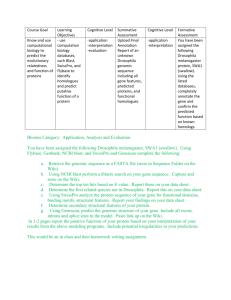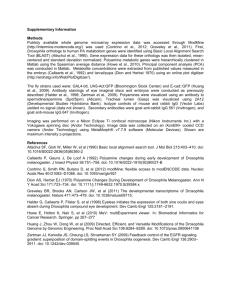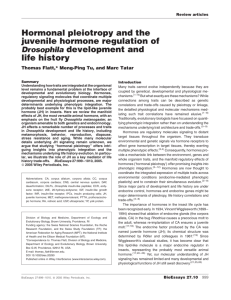MOLECULAR MECHANISMS OF DOPAMINE CONTROL OF
advertisement
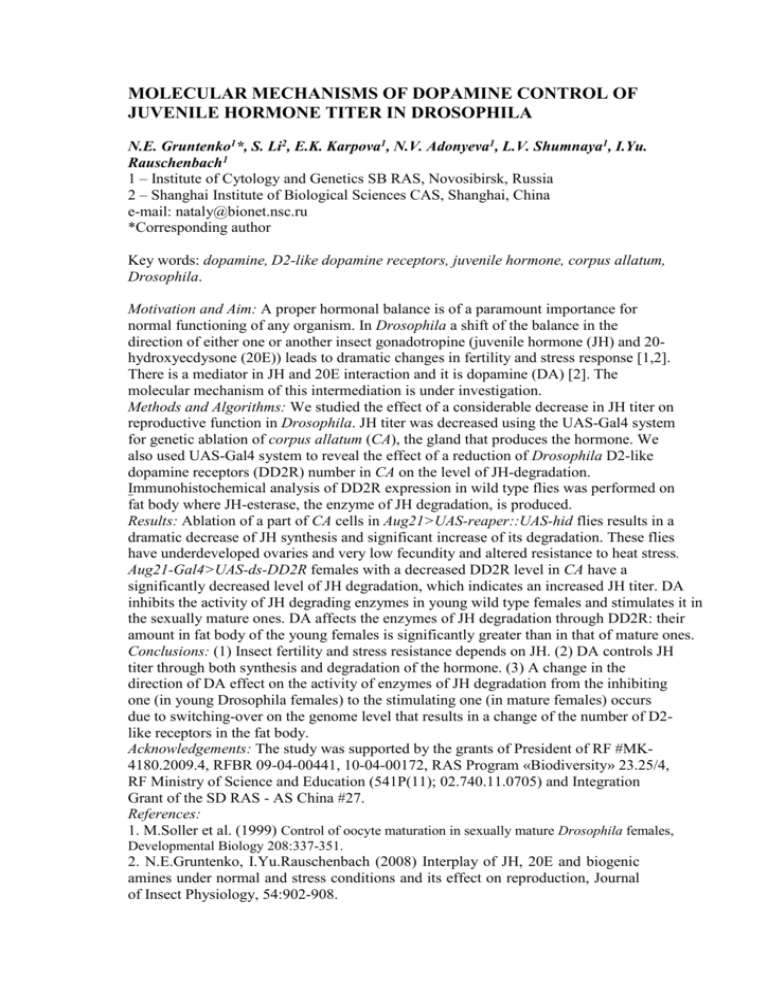
MOLECULAR MECHANISMS OF DOPAMINE CONTROL OF JUVENILE HORMONE TITER IN DROSOPHILA N.E. Gruntenko1*, S. Li2, E.K. Karpova1, N.V. Adonyeva1, L.V. Shumnaya1, I.Yu. Rauschenbach1 1 – Institute of Cytology and Genetics SB RAS, Novosibirsk, Russia 2 – Shanghai Institute of Biological Sciences CAS, Shanghai, China e-mail: nataly@bionet.nsc.ru *Corresponding author Key words: dopamine, D2-like dopamine receptors, juvenile hormone, corpus allatum, Drosophila. Motivation and Aim: A proper hormonal balance is of a paramount importance for normal functioning of any organism. In Drosophila a shift of the balance in the direction of either one or another insect gonadotropine (juvenile hormone (JH) and 20hydroxyecdysone (20E)) leads to dramatic changes in fertility and stress response [1,2]. There is a mediator in JH and 20E interaction and it is dopamine (DA) [2]. The molecular mechanism of this intermediation is under investigation. Methods and Algorithms: We studied the effect of a considerable decrease in JH titer on reproductive function in Drosophila. JH titer was decreased using the UAS-Gal4 system for genetic ablation of corpus allatum (CА), the gland that produces the hormone. We also used UAS-Gal4 system to reveal the effect of a reduction of Drosophila D2-like dopamine receptors (DD2R) number in СА on the level of JH-degradation. Immunohistochemical analysis of DD2R expression in wild type flies was performed on fat body where JH-esterase, the enzyme of JH degradation, is produced. Results: Ablation of a part of CA cells in Aug21>UAS-reaper::UAS-hid flies results in a dramatic decrease of JH synthesis and significant increase of its degradation. These flies have underdeveloped ovaries and very low fecundity and altered resistance to heat stress. Aug21-Gal4>UAS-ds-DD2R females with a decreased DD2R level in CA have a significantly decreased level of JH degradation, which indicates an increased JH titer. DA inhibits the activity of JH degrading enzymes in young wild type females and stimulates it in the sexually mature ones. DA affects the enzymes of JH degradation through DD2R: their amount in fat body of the young females is significantly greater than in that of mature ones. Conclusions: (1) Insect fertility and stress resistance depends on JH. (2) DA controls JH titer through both synthesis and degradation of the hormone. (3) A change in the direction of DA effect on the activity of enzymes of JH degradation from the inhibiting one (in young Drosophila females) to the stimulating one (in mature females) occurs due to switching-over on the genome level that results in a change of the number of D2like receptors in the fat body. Acknowledgements: The study was supported by the grants of President of RF #MK4180.2009.4, RFBR 09-04-00441, 10-04-00172, RAS Program «Biodiversity» 23.25/4, RF Ministry of Science and Education (541P(11); 02.740.11.0705) and Integration Grant of the SD RAS - AS China #27. References: 1. M.Soller et al. (1999) Control of oocyte maturation in sexually mature Drosophila females, Developmental Biology 208:337-351. 2. N.E.Gruntenko, I.Yu.Rauschenbach (2008) Interplay of JH, 20E and biogenic amines under normal and stress conditions and its effect on reproduction, Journal of Insect Physiology, 54:902-908.
